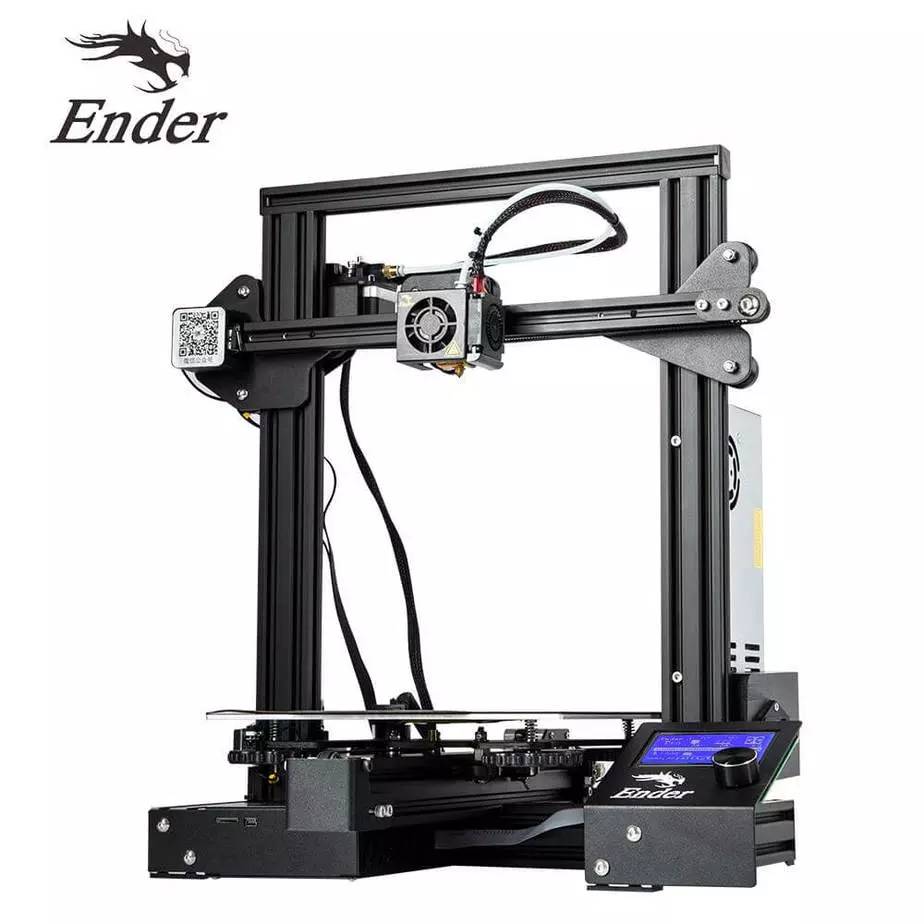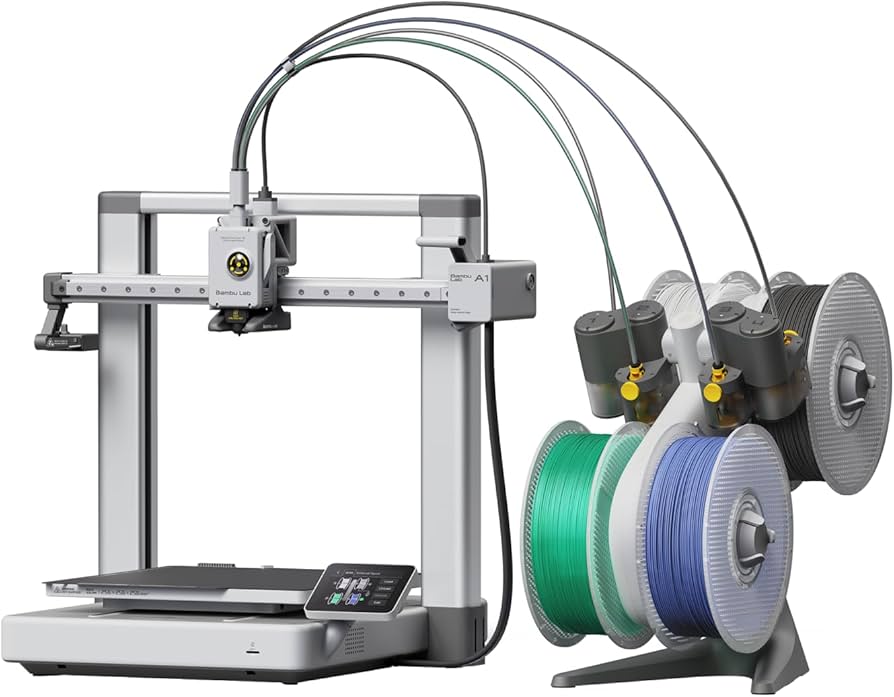Compare Ender 3 PRO vs A1
Comparison between the best 3D printers
Choose the best 3D printer at the best price. The cheapest 3D printers are here.
Buy a 3D printer here with 3D Fila.
 |
 |
|
| Model | Ender 3 PRO[BUY Ender 3 PRO] |
A1[BUY A1] |
| Printing Material | Filament | Filament |
| Buy Filament for Creality 3D Ender 3 PRO | Buy Filament forBambu Lab A1 | |
| Estimated price | $258,00 | $700,00 |
| Manufacturer | Creality 3D | Bambu Lab |
| Release Year | 2019 | 2023 |
| Print Volume [mm] | 220x220x250 | 256x256x256 |
| Printer Size [mm] | 440x440x465 | 385x410x430 |
| Weight [kg] | 6,62 | 8,3 |
| Power Loss Recovery | NO | YES |
| Enclosed printer | NO | NO |
| Bed Leveling | Manual | Automatic |
| Filament End Sensor | NO | YES |
| Bed type | Heated | Heated |
| Power supply system | Bowden | Direct Drive |
| Standard nozzle | 0,4 | 0,4 |
| Maximum Nozzle Temperature [°C] | 255 | 300 |
| Maximum Bed Temperature [°C] | 110 | 100 |
| Maximum printing speed [mm/s] | 180 | 500 |
| Filament holder | YES | YES |
| Camera for supervision | NO | NO |
| Recommended filaments | PLA, TPU, ABS, PETG | PLA, PETG, TPU, PVA |
| Recommended slicers | Cura, Simplify, Slic3r | SuperSlicer, PrusaSlicer, Cura, OrcaSlicer |
| Maximum Resolution [mm] | 0,1 | 0,1 |
| Processor | 32 bits | |
| Display | Mono | Touchscreen 3,5 |
| Power Supply | 24V / 360W Meanwell | 350 W |
| Connectivity | SD / USB | Wi-Fi, Bambu-Bus, Cartão Micro SD |
| Operating systems | Windows, Mac, Linux | Windows, Linux, Macbook |
| Date of registration in the system | 2021-04-14 | 2024-07-17 |
| Release date | 2019 | 2023 |
| Extra features | The Ender 3 Pro stands out for its beginner-friendly assembly and easily modifiable structure. With a 350W power supply, it heats up quickly and has a simple application that offers good print quality. However, its motors and fans are noisy, and the interface seems outdated. Assembly is accessible, without the need for advanced techniques, and it has integrated belt tensioners. It includes a detailed guide and supports microSD card and USB. | The BambuLab A1 printer features fully automatic calibration, multi-color printing with the AMS system, active flow rate compensation, quick nozzle change with a clip, active motor noise cancellation, a build volume of 256x256x256 mm³, a maximum extruder temperature of 300°C, and a heated bed of up to 100°C. In addition, it has high precision, a machine health management system and an intuitive 3.5-inch touchscreen interface. |
| Support for multiple colors and materials (AMS and CFS) | NO | YES |
Notes * |
||
| Cost-benefit | 6 / 10 | 7 / 10 |
| Hardware | 0.5 / 10 | 4.8 / 10 |
| Tela | . | . |
| Print volume | 3 / 10 | 4 / 10 |
| Performance | 1 / 10 | 4 / 10 |
| [BUY Ender 3 PRO] | [BUY A1] |
Conclusion |
| In conclusion, the comparison between the Ender 3 Pro and the Bambu Lab A1 showcases two distinctly different 3D printers that cater to varying user needs and budgets. The Ender 3 Pro, being an older model at a more affordable price point, offers simplicity, ease of assembly, and a proven track record for hobbyists and beginners. It is lightweight, supports a variety of filaments, and provides satisfactory print quality for its cost. However, its manual bed leveling, lack of advanced features like power loss recovery, and noisy operation may deter users seeking a more sophisticated experience. On the other hand, the Bambu Lab A1, a newer, higher-end model, boasts numerous advanced features such as automatic bed leveling, a significantly larger print volume, and a high maximum nozzle temperature. It offers impressive printing speed and precision with a modern touchscreen interface, making it suitable for professional or serious enthusiasts. However, its higher price may restrict access for budget-conscious consumers. Ultimately, the choice between these two models should consider the user's experience level, budget, and specific printing needs. For those prioritizing cost-effectiveness and straightforward functionality, the Ender 3 Pro remains a solid choice. Conversely, users willing to invest more for enhanced performance and advanced features would find better value in the Bambu Lab A1. |

